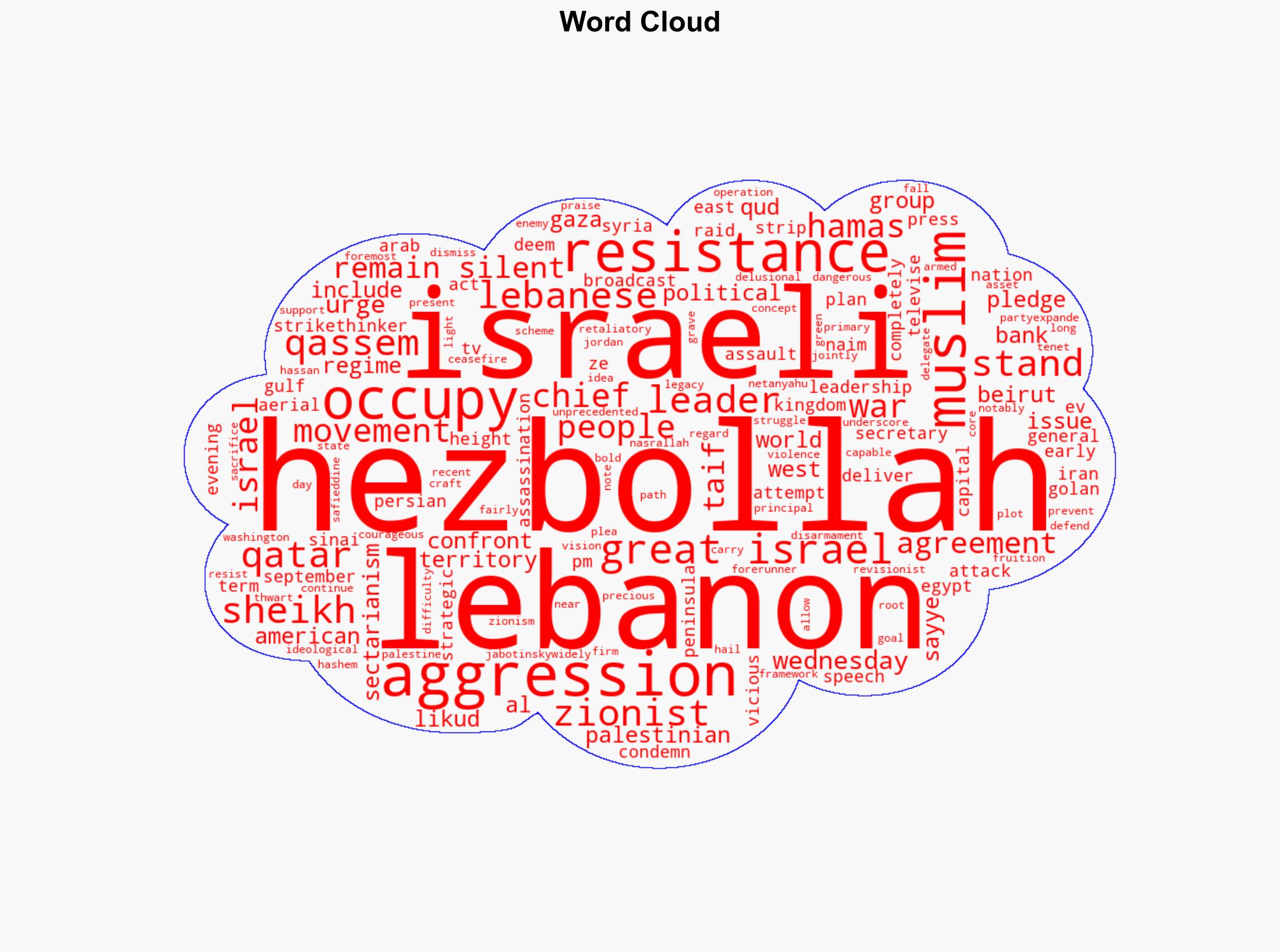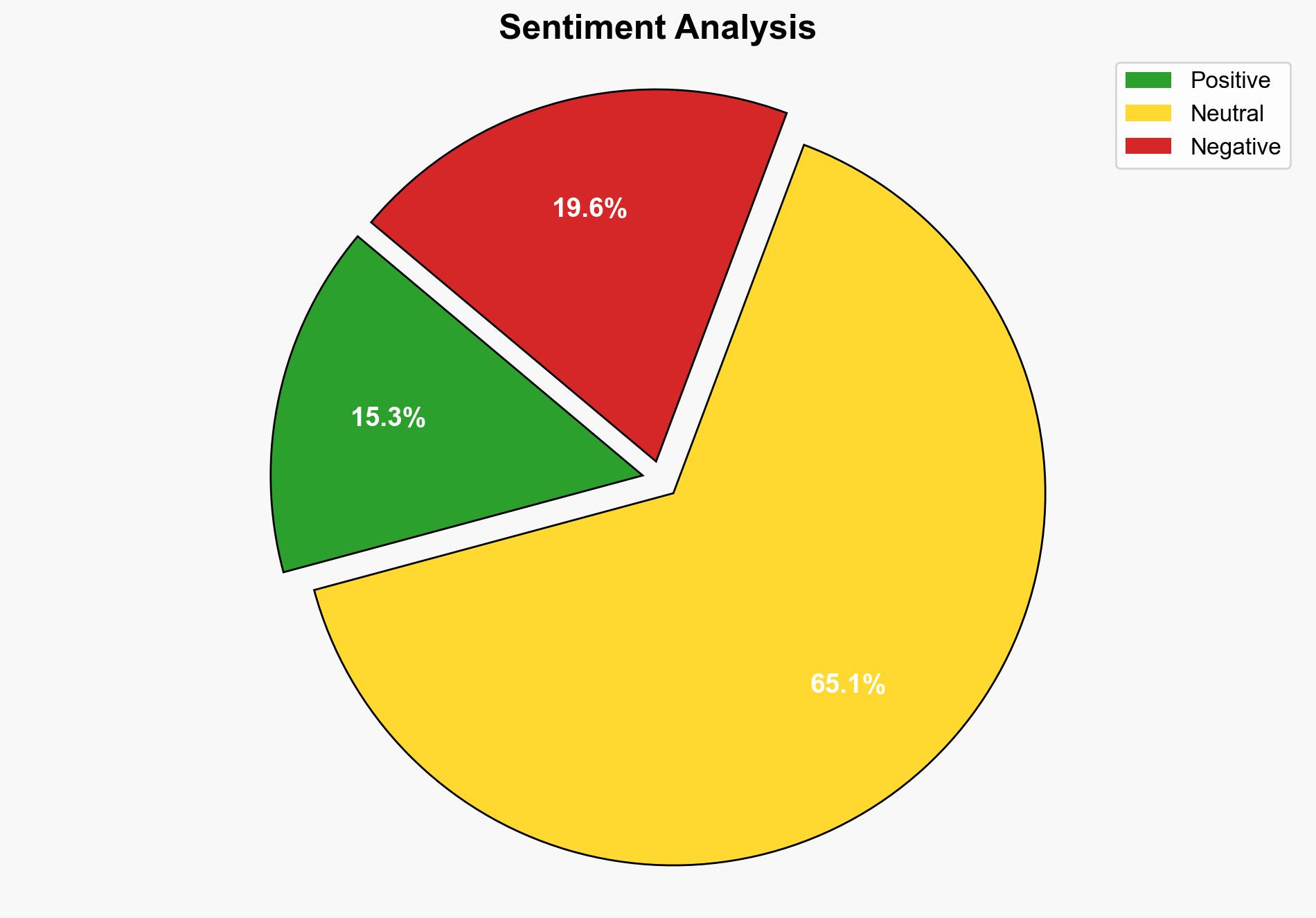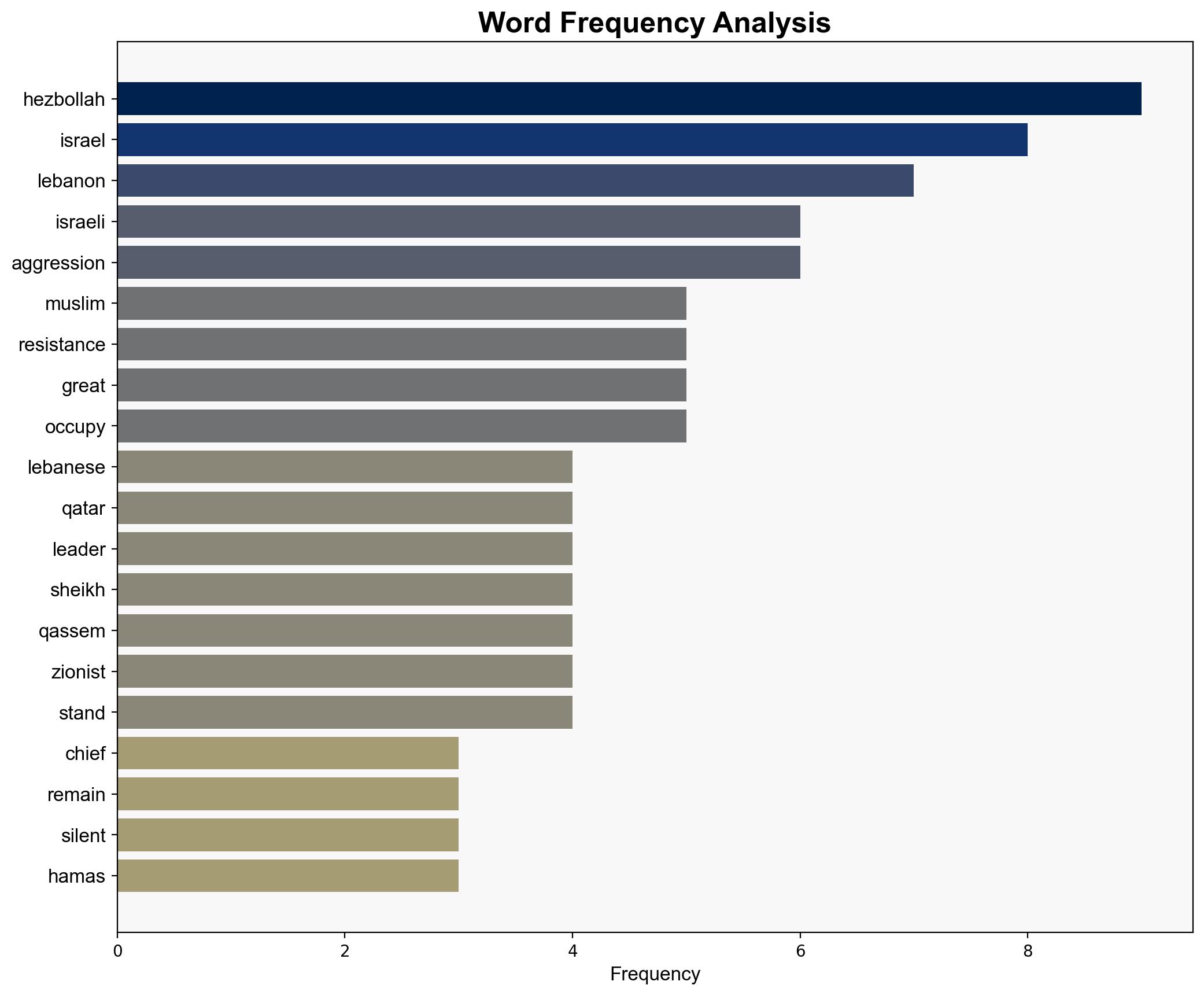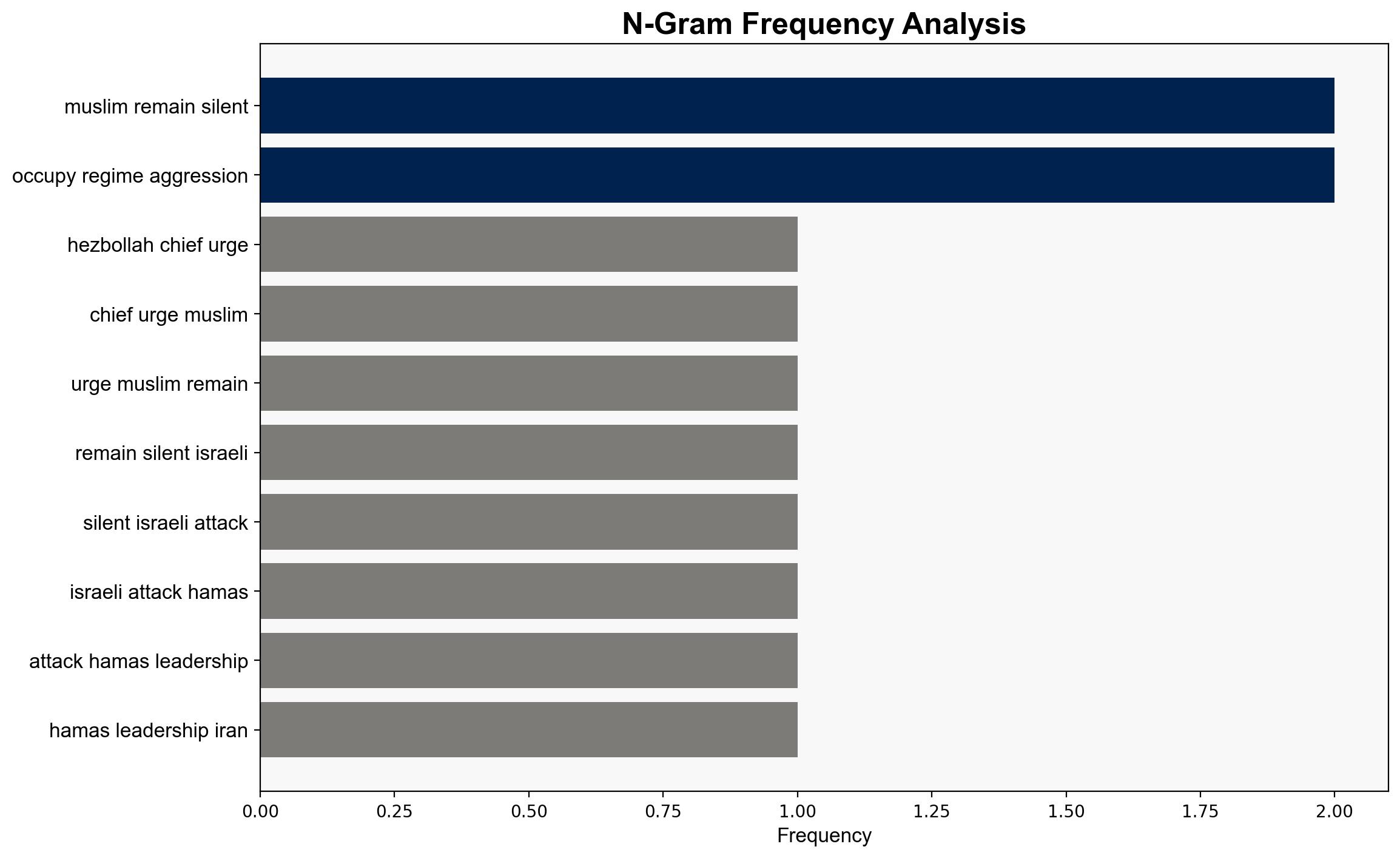Hezbollah chief urges Muslims not to remain silent on Israeli attack on Hamas leadership – Globalsecurity.org
Published on: 2025-09-11
Intelligence Report: Hezbollah chief urges Muslims not to remain silent on Israeli attack on Hamas leadership – Globalsecurity.org
1. BLUF (Bottom Line Up Front)
The intelligence suggests a heightened risk of regional instability due to Hezbollah’s call for Muslim solidarity against Israeli actions. The most supported hypothesis is that Hezbollah aims to consolidate regional influence by rallying support against Israel. Confidence level: Moderate. Recommended action: Monitor Hezbollah’s communications and regional responses to anticipate potential escalations.
2. Competing Hypotheses
1. **Hezbollah seeks to consolidate regional influence:** By urging Muslims to oppose Israeli actions, Hezbollah aims to strengthen its position as a leading resistance force in the region, potentially increasing its influence over Palestinian groups and other regional actors.
2. **Hezbollah is attempting to distract from internal challenges:** The call to action may serve as a diversion from Lebanon’s internal issues, such as political instability and economic crisis, by redirecting public attention towards external threats.
Using ACH 2.0, the first hypothesis is better supported due to Hezbollah’s historical pattern of leveraging regional conflicts to bolster its standing and the specific emphasis on resistance against Israel.
3. Key Assumptions and Red Flags
– **Assumptions:** It is assumed that Hezbollah’s rhetoric will translate into tangible actions. Another assumption is that regional actors will respond predictably to Hezbollah’s calls.
– **Red Flags:** The absence of direct responses from key regional actors like Iran or Saudi Arabia could indicate a lack of consensus or support. Additionally, the potential exaggeration of Hezbollah’s capabilities and intentions should be scrutinized.
4. Implications and Strategic Risks
– **Geopolitical Risks:** Increased tensions between Israel and Hezbollah could lead to broader regional conflicts, involving other state and non-state actors.
– **Economic Risks:** Escalation could disrupt trade routes and impact global oil prices, particularly if Persian Gulf states become involved.
– **Psychological Risks:** Heightened rhetoric may inflame sectarian tensions within Lebanon, exacerbating existing political and social divides.
5. Recommendations and Outlook
- Enhance intelligence-sharing with regional allies to monitor Hezbollah’s activities and communications.
- Prepare contingency plans for potential escalations, including diplomatic interventions and economic sanctions.
- Scenario Projections:
- Best: Diplomatic efforts de-escalate tensions, leading to renewed peace talks.
- Worst: Full-scale conflict involving multiple regional actors, destabilizing the Middle East.
- Most Likely: Continued low-intensity skirmishes and rhetorical exchanges, with periodic escalations.
6. Key Individuals and Entities
– Sheikh Naim Qassem
– Sayyed Hassan Nasrallah
– Sayyed Hashem Safieddine
– Ze’ev Jabotinsky (historical reference)
7. Thematic Tags
national security threats, regional instability, geopolitical tensions, Middle East conflict





